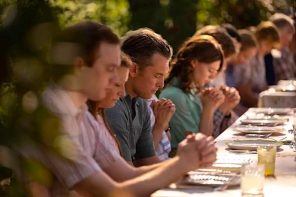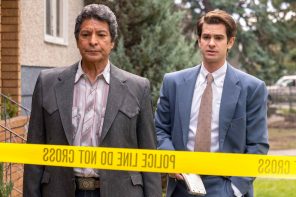Joanna points to this story by the Daily Beast’s McKay Coppins, on a series of emails between David Lane, the evangelical organizer behind Rick Perry’s The Response, and Christian radio executive Dick Bott, about the former’s upcoming interview with Perry endorser, the anti-Mormon Robert Jeffress.
The story hints at, but doesn’t deliver, on the suggestion that Lane coordinated with the Perry campaign to get Jeffress to step out with his anti-Mormon diatribe: “The emails raise questions about whether Jeffress’s anti-Mormon rhetoric was a deliberate strategic move by the campaign, or simply the prerogative of an independent pastor expressing a widely held view among evangelical Christians.”
Now, obviously, Lane is close with the Perry camp. He played a central role in organizing and promoting The Response. His organizations have supported Perry, dating back to 2005 and his leadership of the Texas Restoration Project, which boosted Perry’s reelection race for governor. As the emails Coppins obtained make clear, he’s anti-Mormon. But there’s no evidence that he coordinated with the Perry campaign to put Jeffress front and center at the Values Voters Summit on October 7 as the face of evangelical anti-Mormonism, just that he was quite pleased with the outcome.
The email exchanges between Lane and Bott took place after the Values Voters Summit, on October 12, with after-the-fact praising of what Jeffress had done. (Lane: “Getting out Dr. Jeffress [sic] message, juxtaposing traditional Christianity to the false god of Mormonism, is very important in the larger scheme of things.”) Coppins suggests that because Lane played a role in some pre-Response meetings among leading religious right figures, that he must have coordinated with the Perry campaign to encourage Jeffress’ anti-Mormon statements.
It’s true that those pre-Response meetings, which were instigated by televangelist James Robison, were focused on evangelical imperatives in the primary race. But Coppins offers no evidence that there were plans hatched there to denigrate Romney’s Mormonism explicitly in the service of a Perry candidacy. At least one of the attendees there, the Family Research Council’s Tony Perkins, later defended Romney’s calling out of his anti-Mormon detractors at the Values Voters Summit.
To be very clear: Lane is a Christian nation absolutist. About the Renewal and Restoration Projects he’s been behind, he told me in a rare 2008 interview, “What we’re doing is the mobilization of pastors and pews to restore America to her Judeo-Christian heritage. That’s our goal.” He believes, as does Jeffress, that only an evangelical approved by him is qualified to be president. Earlier this year, he rebuffed an effort by Ron Paul advisor Doug Wead to gain his support. (In his story, Coppins describes Wead as “a leading historian of the Christian right as he quotes him calling Lane “the mysterious, behind the scenes, evangelical kingmaker.” But Wead is far more than a historian of the Christian right; he made that history as the architect of both Bushes’ evangelical outreach, and is performing the same role now for Paul.)
I wrote after the Values Voters Summit concluded that there’s a war within the religious right, between those willing to engage in rank bigotry against Mormons, and those who want to tamp it down, even as they know it exists among evangelicals. I’m guessing that if Romney had a more pure record on their issues—say, if he had been unequivocally anti-LGBT rights and anti-choice throughout his career, and if he had regularly venerated the Christian nation mythology like fellow Mormon Glenn Beck—this whole distasteful episode might have played out differently.
Yes, the anti-Mormonism is front and center. But the problem with these Christian right players backing Perry is not just their anti-Mormonism, it’s their demand that evangelicalism is a pre-requisite for the White House. That’s the clear message the Perry campaign has authorized.




